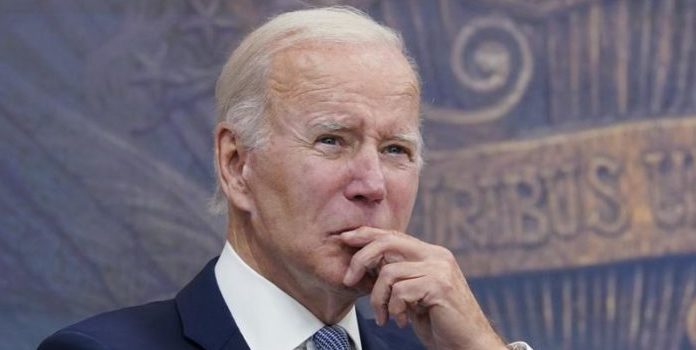(Headline USA) The addled Joe Biden is attempting to take stock of a newly empowered Xi Jinping as the Chinese president begins a third, norm-breaking five-year term as Communist Party leader. With U.S.-Chinese relations already fraught, concerns are growing in Washington that more difficult days may be ahead.
Xi has amassed a measure of power over China’s ruling party unseen since Mao Zedong, the leader from 1949 until his death in 1976. Xi’s consolidation of power comes as the United States has updated its defense and national security strategies to reflect that China is now America’s most potent military and economic adversary.
Biden now faces, in Xi, a counterpart buoyed by a greater measure of power and determined to cement China’s superpower status even while navigating strong economic and diplomatic headwinds.
“We’re not back in the Mao era. Xi Jinping is not Mao,” said Jude Blanchette, chair of China studies at the Center for Strategic and International Studies. “But we are definitely in new territory and unpredictable territory in terms of the stability and predictability of China’s political system.”
Biden and Xi are expected to hold talks on the sidelines of next month’s Group of 20 summit in Indonesia, a long-anticipated meeting that would come after nearly two years of tense relations. The leaders are dug into winning the upper hand in a competition that both believe will determine which country is the leading global economic and political force driving the next century.
Biden and Xi traveled together in the U.S. and China in 2011 and 2012, and they have held five phone or video calls since Biden became president in January 2021. But the U.S.-China relationship has become far more complicated since those getting-to-know-you talks over meals in Washington and on the Tibetan plateau a decade ago.
Xi’s government has criticized Biden’s posture toward Taiwan. The Chinese president also has suggested that Washington wants to stifle Beijing’s growing clout as it tries to overtake the U.S. as the world’s largest economy.
“External attempts to suppress and contain China may escalate at any time,” Xi warned in his address before the Communist Party congress. “We must therefore be more mindful of potential dangers, be prepared to deal with worst-case scenarios, and be ready to withstand high winds, choppy waters and even dangerous storms.”
Shortly thereafter, American and Chinese officials were trading rhetorical shots about the U.S. move earlier this month to expand export controls on the sale of advanced semiconductor chips to China.
“The U.S. has overstretched the national security concept and suppressed China’s development, and normal business cooperation has been politicized and weaponized,” Wang Hongxia, counselor at the Chinese Embassy in Washington, told reporters.
Her comments came not long after a top Commerce Department official, Undersecretary Alan Estevez, said at a Washington forum that “if I was a betting person, I would put down money” on the U.S. imposing additional export controls on China.
At the same time, Secretary of State Antony Blinken as well as the U.S. chief naval operations officer, Adm. Mike Gilday, have recently expressed concern that Beijing may try to step up its timeline to seize Taiwan. Blinken said China had made “a fundamental decision that the status quo was no longer acceptable.”
U.S.-China tensions have been further enflamed by House Speaker Nancy Pelosi’s August visit to Taiwan and Biden’s remark in May that the U.S. military would defend Taiwan in case of an attack by China, comments the White House later played down.
“What’s concerning now is that with Xi’s unlimited power and ambition, he may use Taiwan to distract from his internal problems,” said Keith Krach, a former undersecretary of state during the Trump administration.
Adapted from reporting by the Associated Press

